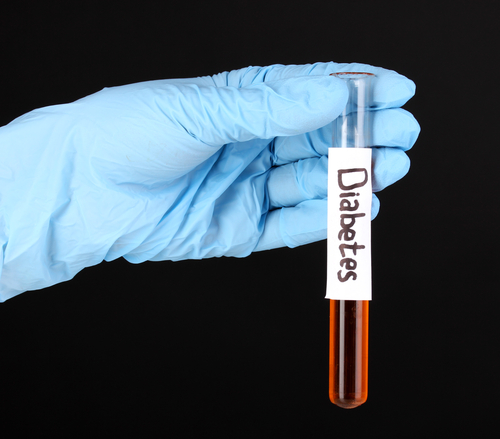Happy pills are more prescribed than ever and the NHS reports 46.7 million antidepressant prescriptions were written in 2011, a staggering rise of 3.9 million more than the previous year. But what if you don’t want to take medication, what are your proven options? Here are seven proven ways to help depression without drugs or medication
1. MEDICAL TESTS
Up to one in ten people have underlying physical conditions such as underactive thyroid, undiagnosed diabetes and ceoliac disease that may account for their depression yet this is something doctors rarely discuss with their patients. Many medications, some as innocuous-seeming as antacids and cortisone creams, list depression as a possible side effect, but most of us rarely imagine our over-the-counter and prescription medicines might contribute to depression. Simple blood tests can be carried by your GP out to check for diabetes, ceoliac or thyroid disease all of which give rise to the symptoms of depression and ask your pharmacist whether any OTC meds you routinely take are associated with mood issues
2. MEDITATION
Just 20 minutes daily of mindfulness meditation – a non-religious technique that simply focuses on the breath and the moment – has been proved to improve depression and anxiety. In fact, Mindfulness Based Cognitive Behavioural Therapy or MBCT is an eight-week course available nationally on the NHS, combining meditation and either group therapy or one-to-one counselling, pioneered at the Department of Psychiatry at the University of Oxford. So effective is MBCT in alleviating mild depression that the National Institute of Clinical Excellence (NICE) now recommends it as a treatment of choice for recurrent depression. You may be entitled to an MBCT course on the NHS, so talk to your GP. Private 8-week courses range from £180-720, depending on whether you take a course in a group or one-to-one.
For courses, retreats and further information, see London-meditation.co.uk (one-to-one courses), bangor.ac.uk/mindfulness (group courses, distance learning courses and 2-day workshops), gaiahouse.co.uk (introductory retreats), and mbct.co.uk (information). For a set of five CDs through which you can learn MBCT log on to Oxford Cognitive Therapy Centre to buy. Alternatively, The Mindful Way Through Depression (Giuldford Press £12.99 amazon) is a book and CD set by the Oxford University pioneers of the technique. Read Healthista’s Healthypedia Guide to Mindfulness
3. EXERCISE
Just a single walk in the park improved tension and depression in 90 per cent of those surveyed according to a study by Mind, the mental health charity. Depression is often the accumulation of stressful episodes that go unrelieved for prolonged periods and exercise burns off the chemicals such as cortisol and adrenalin that we produce in stressful situations so they don’t build up and over time contribute to depression. 30 minutes of aerobic exercise such as running, swimming or cycling ideally five times a week will help boost mood. But if you can only manage a 10-15 minute walk each day, it will still benefit your mood.
4. GOING SUGAR-FREE
It’s hard but if you have mood issues it really works. Our sugar consumption has soared but our bodies have not evolved to eat the amount of sugar we’re eating. Here’s how sugar wreaks utter havoc on our moods: the carbohydrates we eat are all broken down into glucose, on which our brains run, ideally from a constant supply of complex ‘slow-release’ carbohydrates from vegetables, fruits and unprocessed, wholemeal grains. But if we eat lots of refined sugar, our brains are repeatedly flooded with glucose after every ‘hit’ and then quickly depleted, keeping our blood sugar in a constant up/down cycle.
The more uneven our blood sugar supply, the more uneven our mood. What’s more eating lots of sugar uses up essential B vitamins, zinc and magnesium, nutrients that are essential to the production of neurotransmitters such as serotonin and dopamine which promote feelings of happiness and contentment in our brains.
Caffeine works in exactly the same way. Along with sugar, it’s a stimulant, but while they give you an initial hit, in the long term both substances deplete important ‘happy’ nutrients from the body. People with low serotonin levels tend to crave sweets. So, if you consume sugar habitually this ‘self-medicating’ is thwarting your body’s own ability to produce serotonin.
Break this cycle and while you might crave sweets for 3-4 days, within a week you’re closer to re-training your brain to create it’s own happiness chemicals, which is how your cravings eventually subside. Try and cut out all forms of sugar for just one week to adjust your palate and see how much better a sugar free life feels. Start at the weekend as you might experience a few days of low energy.
Keep cravings at bay by replacing coffee with green tea and eating a balanced breakfast each day, especially for that first week, that contains both a small amount of protein and complex carbohydrates. Muesli with fruit and few nuts is perfect. Within about four days your cravings will subside, you will probably find your mood is a lot more stable and your body is producing it’s own energy, so you’re not wrenching it from one artificially stimulated state to the other.
If you need some help, we’re loving new book The Sugar Detox, by Brooke Alpert and Patricia Farris (Da Capo Publishing £12.99 from Amazon) that came out on June 13th this year. It’s a safe and controlled programme for getting off the white stuff that won’t leave you craving and hungry and get you feeling better within days.
READ MORE: Healthsita writer’s sugar-free diet diary
5. TARGETED THERAPY
Ten years ago mention therapy and images of a navel-gazing Woody Allen sprang to mind. But today’s therapy options are far more results-driven and needn’t mean years of wallet-draining psychoanalysis. There is no one size fits all answer to therapy for depression. The bottom line for many experts today is a need to ‘feel our feelings’, through talking therapies, lest we repress them and find them manifesting as addictive or violent behaviour or severe depression.
Think about the nature of your depression and then research a couple of different types of therapy. If your depression manifests as anxiety and negative patterns of thinking, then Cognitive Behavioural Therapy or CBT which helps people change ingrained thought patterns may help you.
If your depression stems from a traumatic event in your childhood, then psychodynamic therapy will probably suit you better. For information on therapy types and to find a therapist, go to the British Association of Counselling and therapy at itsgoodtotalk.org.uk. You can also have CBT therapy on-line. Try Beating the Blues, by Ultrasis, for mild or moderate depression which costs £149.95 for eight on-line sessions and year-long on-line support. Click here for more information
Here are some free online CBT resources:
Mood Gym Information, quizzes, games and skills training to help prevent depression. Based in Australia but useful worldwide
Living Life to the Full Free online life skills course for people feeling distressed and their carers. Helps you understand why you feel as you do and make changes in your thinking, activities, sleep and relationships.
Fear Fighter free access but can only be prescribed by your doctor in England and Wales – it’s more for anxiety but it brilliant
6. OMEGA 3s
In order for our brain to function at it’s best and to assimilate happy chemicals and nutrients from foods, a high intake of omega-3 fatty acids is needed. This is because our brains are around 60 per cent fat. But not just any old fat, this is ‘functional fat’ and made primarily of omega-3 fatty acids. However, today’s food production practices make it difficult to get the amounts we need. When cattle and chickens were being reared on farms and fed on grass they had the same levels of omega 3 fats in their meat as wild animals – the optimal levels for human brain function. But because most chicken and cattle is no longer wild and free range, and now grain fed, it’s far more difficult to get optimum levels of omega-3 fatty acids from their meat. You can eat more oily fish to up your intake of omega-3s but this too needs to be wild, as farmed fish is also grain fed and can display low levels of omega-3s too.
Take a high quality omega-3 supplement (look on the label and ensure it is high in ‘EPA’ and low in ‘DHA’ for maximum mood enhancing benefits). The best we have come across is MoreEPA Platinum from £33.95 with vitamin D from Minami Nutrition (from amazon) or all good chemists. They are produced in environmentally friendly ways, checked stringently for purity and formulated in consultation with the world’s most renowned scientific experts – plus, unlike most omega-3 supplements which require you to take 3-6 tablets a day, these require just one tablet a day, so they’re value for money and easier to take. Depression is one of the main symptoms of omega-3 deficiency, but people with low stores may also have dry hair, skin and nails, difficulty concentrating, be thirsty all the time and possibly constipated. If you are choosing another brand, look on the label to ensure it comes from a marine source such as salmon or other oily fish. It should also contain more ‘Eicosapentaenoic Acid’ (EPA, at least 1000mg) and less Docosahexaenic Acid (DHA). If you’re a vegetarian, a supplement of flaxseed oil will help you get your omega-3 fix, or you can buy the oil and have it in porridge and salads (from health food stores).
7. 5-HTP
The A-lister of ‘happy’ chemicals must be serotonin. This substance is the brain’s mood and sleep regulator (it’s what anti-depressant pills mimic) and key in the alleviation of depression. Our bodies make it from another substance called tryptophan, which we get from certain foods such as turkey breast and banana.
5-htp (that’s short for 5-hydroxytryptophan) is a natural substance made from a small African bean known as Griffonia, that helps the body manufacture serotonin from its tryptophan stores. In fact, studies on patients taking it for three weeks found it not only helped alleviate mild depression, it also helped with insomnia, headaches and panic attacks.
Try a low dose of 100 milligrams of 5-htp and slowly build up to 300mg daily (try Healthspan 100mg 5-HTP £13.95 from healthspan.co.uk). It’s best taken in the evening with a small carbohydrate snack such as an oatcake or banana. You should see a change within two weeks and by week six, see a marked improvement in your mood. If you don’t, see your doctor.
READ MORE
Why depression is NOT all in your head
‘How I overcame depression without medication’
Probiotics – 13 things you REALLY need to know
13 things NOT to say to a man who has depression
Like this article? Sign up to our newsletter to get more articles like this delivered straight to your inbox.






















































